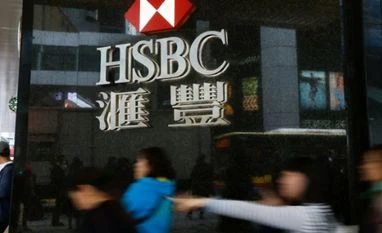HSBC Holdings Plc, Europe's biggest bank, tapped an outsider for its top job on Monday, appointing insurance veteran and AIA Group boss Mark Tucker as chairman to replace Douglas Flint, who plans to step down in 2017.
A one-time professional footballer who has held several leadership jobs including running Britain's Prudential, Tucker will take over as group chairman designate from Sept 1 and as non-executive group chairman on Oct 1.
The bank's shares rose 1.2 per cent in Hong Kong on Monday on news of the appointment, which market-watchers said signalled the bank's ongoing pivot towards Asia and steadier, lower-risk income streams.
"The appointment of a safe pair of hands like Tucker potentially signals an increasing focus on steadier, annuity-style income streams where HSBC has a competitive advantage and which are also set to benefit as interest rates rise," said Benjamin Quinlan, CEO of Hong Kong consultancy Quinlan & Associates.
"It also highlights a renewed focus on risk and compliance after HSBC recently got itself in hot water with regulators. The strategy now is all about stability and predictability."
Among the first tasks for Tucker - whose appointment breaks with HSBC's usual practice of appointing insiders for its top jobs - will be to identify a successor to HSBC Chief Executive Stuart Gulliver, a process expected to conclude in 2018.
Flint and Gulliver's departure from HSBC after six years will end one of the longest-serving management partnerships at a major global bank.
Also Read
The pair slashed over 43,000 jobs and sold assets worldwide as they attempted to shrink the group back to profitability amid a tough environment for global banks.
With more than $1.2 trillion in customer deposits, HSBC has suffered more than most lenders from low global interest rates which have made it difficult to invest deposits profitably.
HSBC's full-year profit slumped 62 percent and fell far short of forecasts last month as the bank took hefty writedowns from restructuring efforts and flagged near-term brakes on revenue growth.
NEW CEO
In choosing the next chief executive, Tucker will first have to decide whether to promote one of the lender's existing senior executives or select an outsider like himself.
For his efforts, Tucker will receive an annual fee of 1.5 million pounds ($1.83 million) in addition to standard benefits, HSBC said.
His basic salary at AIA in 2015 was $1.5 million, but short-term and long-term incentives could bring that total as high as $9.9 million, according to AIA's latest annual report.
Leading internal candidates for the CEO role include HSBC's Europe chief Antonio Simoes and retail and wealth management head John Flint, while former Goldman Sachs banker Matthew Westerman is seen by some internally as a candidate despite overseeing a relatively small part of the investment bank.
Among external candidates, Lloyds Banking Group Chief Executive Antonio Horta-Osorio is the name most frequently cited by investors.
An exodus of senior talent from the industry in the wake of the global financial crisis had made it "extremely challenging" to find very senior executives, Quinlan said.
The new CEO's main challenge will be to restore revenue growth at HSBC. The bank's return on equity, a key measure of performance, slumped last year to less than one percent compared with 7.6 per cent the year before and far short of a long-term target of 10 per cent.
Other obstacles to boosting HSBC's profits include low demand for loans in its twin home markets of Britain and Hong Kong, reflected in a loan-to-deposit ratio of 67 per cent, below most of the lender's global peers.
HSBC also faces slowing economic growth in China, dampening hopes that an Asia pivot strategy announced last year could boost returns for the bank.
While HSBC's share price has barely risen during the tenure of Flint and Gulliver, the pair can point to successes, including the shrinking of the bank following a pre-2008 era of excessive empire-building and a clean-up of its culture.
In a separate statement, AIA said Ng Keng Hooi, its regional chief executive, will succeed Tucker from Sept 1.
Tucker is also stepping down from the board of Goldman Sachs.
)